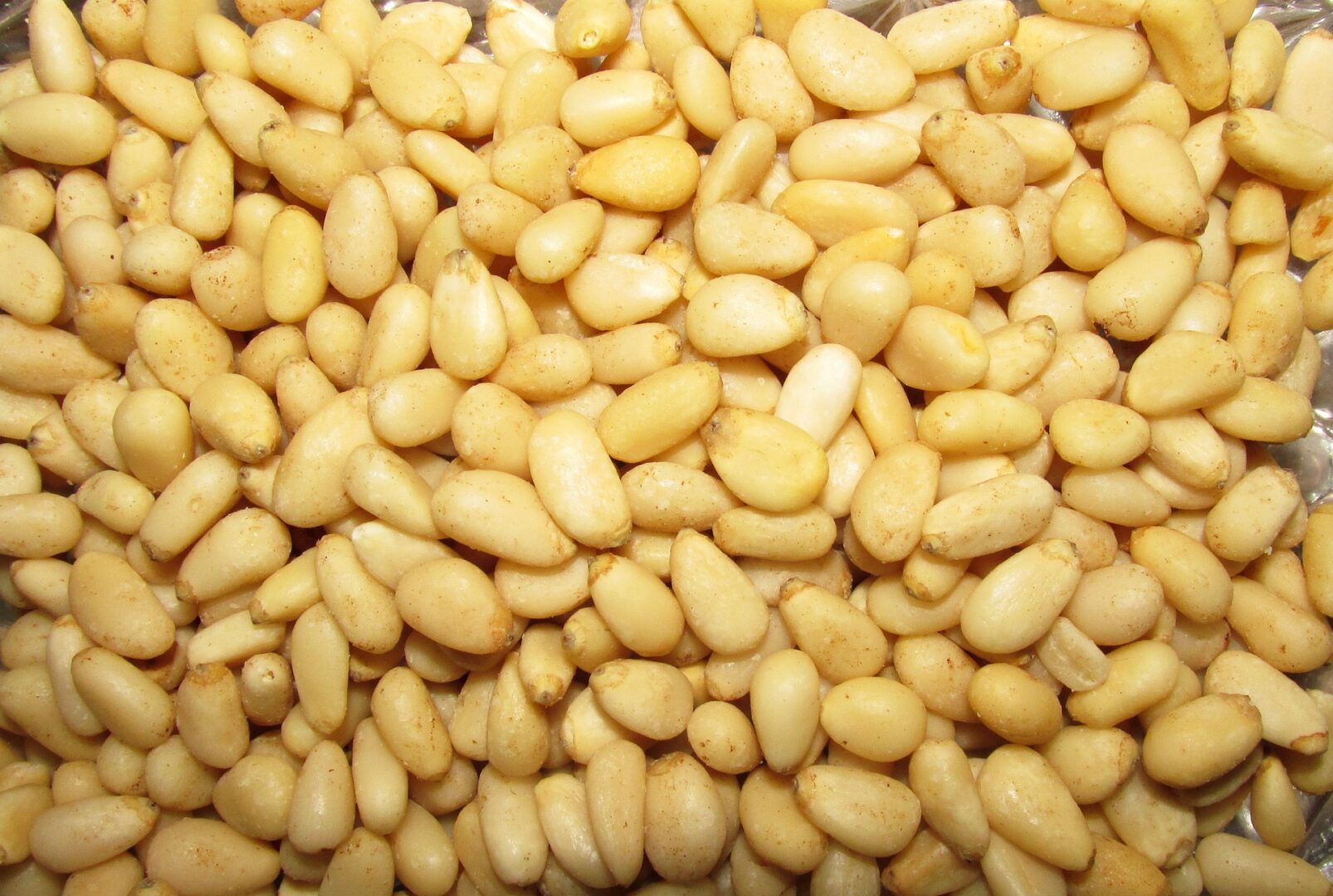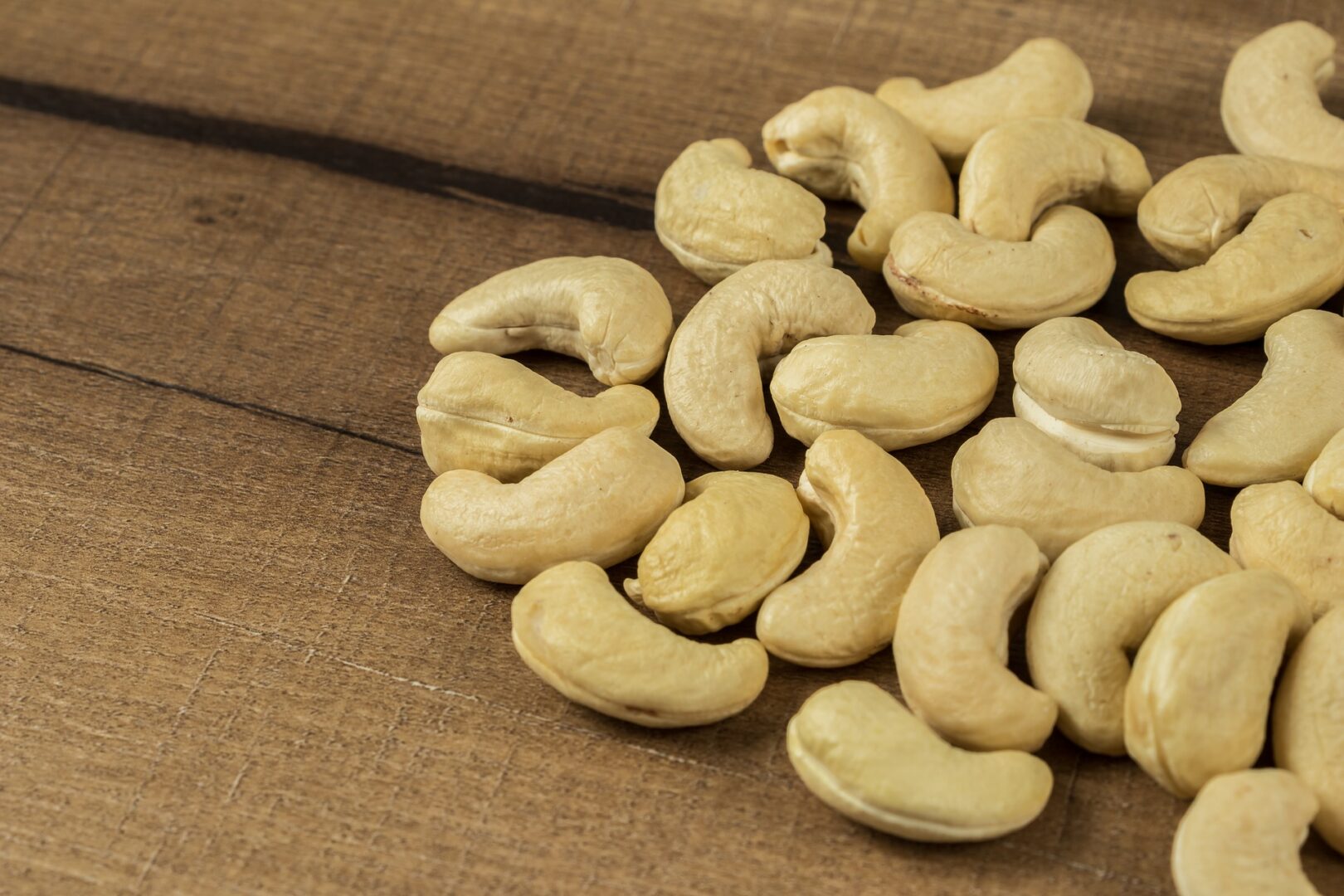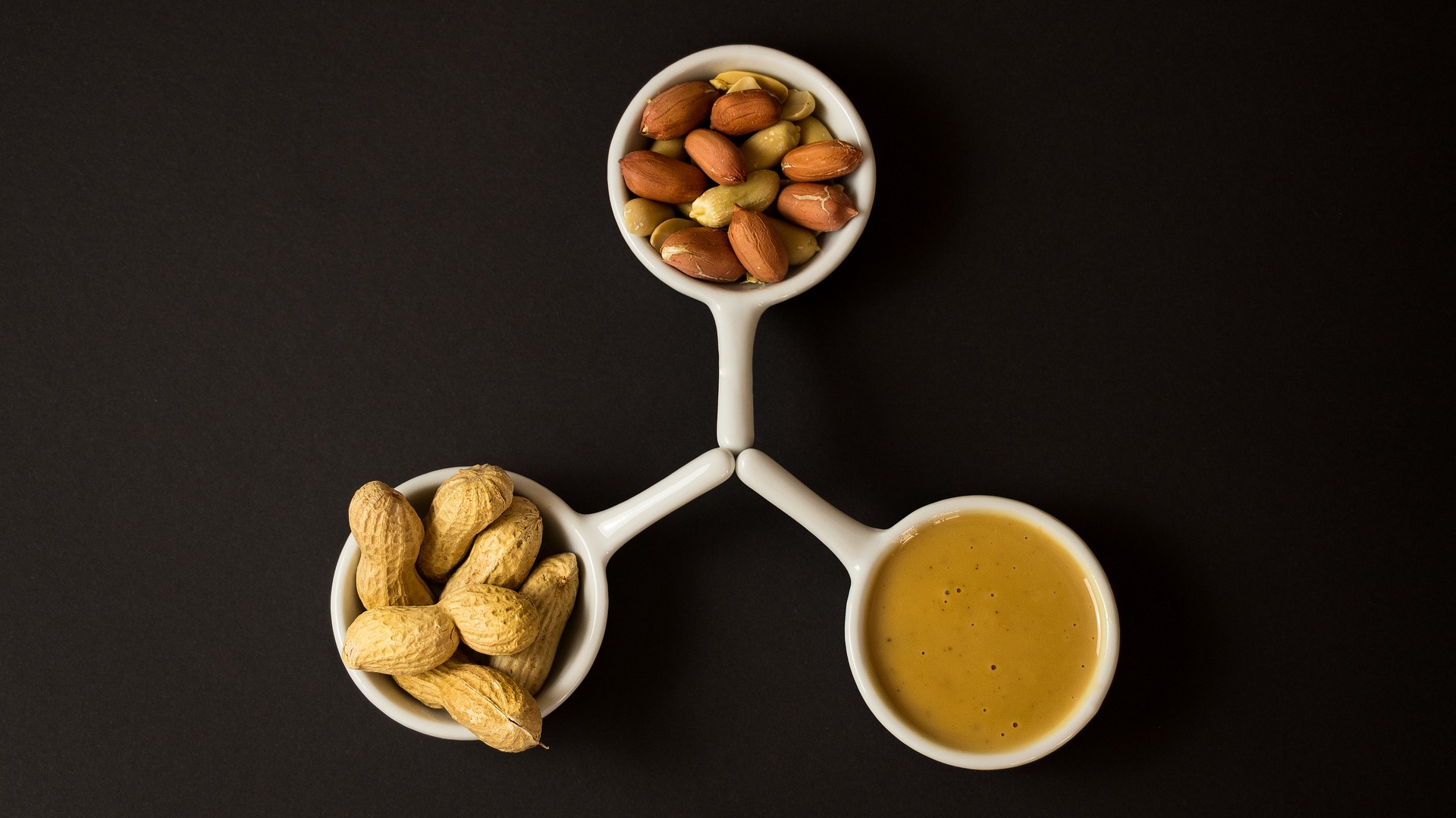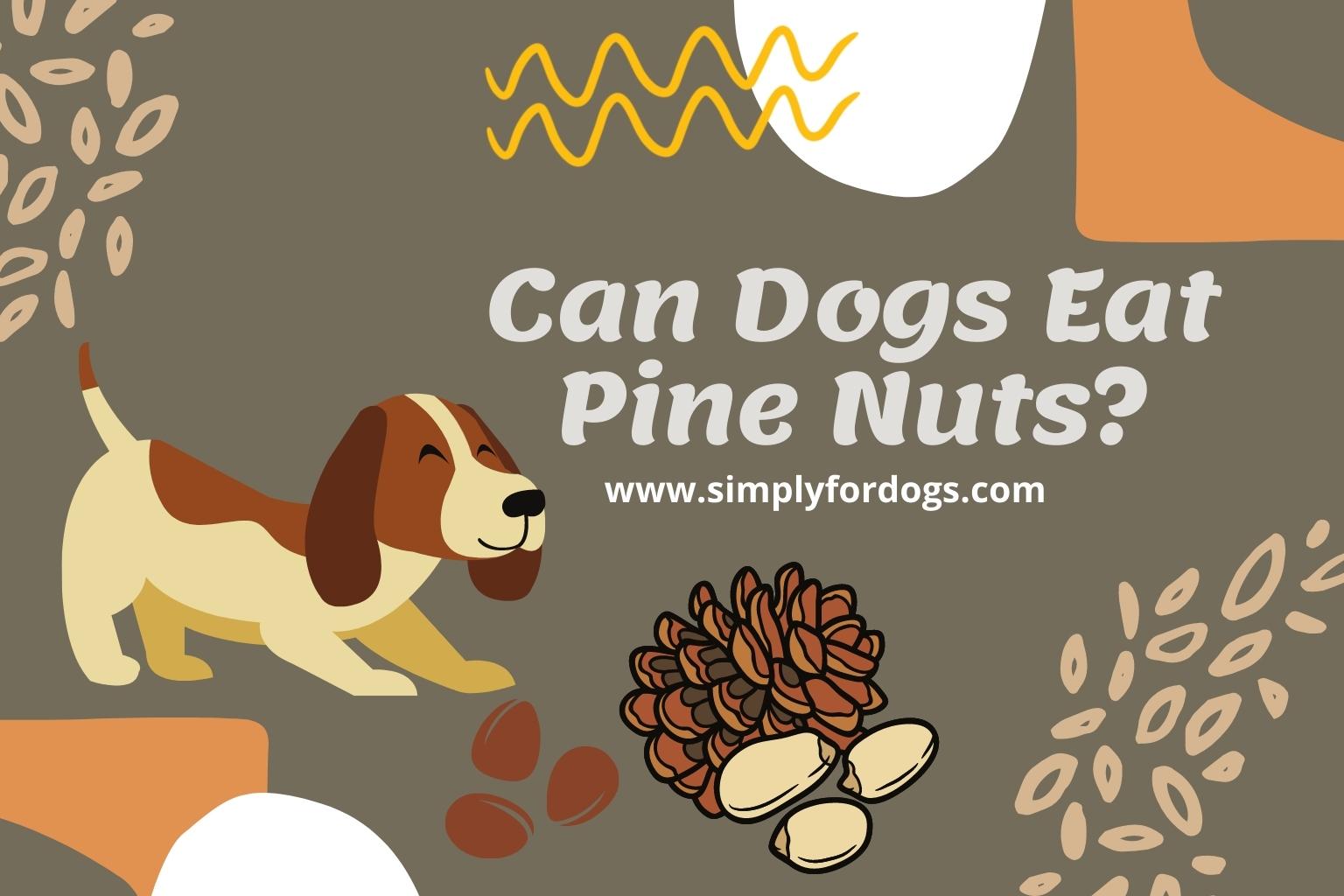Are you really a dog parent if you don’t scream at your dog, “Open your mouth” and “What did you eat?” around 9000 times a day?
Every dog owner’s nightmare is to have their baby ingesting something harmful. So if you’re wondering whether you should put pine nuts on the ban list, we’ve got you covered. Here’s everything you need to know about nuts if you’re a dog owner or if you love dogs.
Can Pine Nuts Hurt Dogs?
Most humans love how tasty nuts are, and we all know the many benefits they have for our human bodies, but are they toxic to dogs?
Pine nuts give an exceptional boost in energy levels due to their high-fat content. Plus, not only are they rich in protein, magnesium, iron, and vitamin E, which doesn’t only benefit the skin, nails, and hair, but they also have an antioxidant effect on the whole body.

However, these things can translate a little bit differently when it comes to our dogs. Pine nuts have a high content of fats, which your dog’s digestive system, especially the pancreas, can’t really handle. Hence, too much of these fatty nuts can lead to pancreatitis, especially in small dogs.
Besides, these nuts also contain a lot of phosphorus, which can lead to urinary tract complications, such as developing urinary stones and even kidney disease.
Subsequently, it’s safe for dogs to have these nuts in small quantities. However, pine nuts can hurt dogs if taken in large quantities because they’re high in fat and phosphorus.
What Nut Should a Dog Not Eat?
As we’ve just mentioned, some nuts are great for dogs as long as they are taken in very small quantities. Nevertheless, not all nuts fall under this category. Some “bad nuts” can cause serious health issues for your dog, even when taken as an occasional treat. So, let’s have a rundown of the nuts that are toxic to dogs.
What Nuts Are Poisonous to Dogs?
Horse Chestnuts
Chestnuts are somewhat different from most nuts we’re going to discuss today; they’re high on fiber and low on fat. So you might think that they’re safe for dogs, but they actually aren’t. Why?
Horse chestnuts contain a toxic element known as Juglone. They might also contain fungus, which means they could easily carry aspergillus mold and the numerous mycotoxins secreted by fungi.
This can lead to seizures, vomiting, diarrhea, and other severer symptoms such as paralysis. Even worse, if this toxicity gets out of hand, liver damage becomes a probable outcome, which can be lethal.
Hickory Nuts
We’ve already seen this pattern with horse chestnuts and are going to see it with a few other nuts that are not safe for dogs today.
Hickory nuts, too, carry Juglone, which makes these nuts toxic to dogs. Also, because hickory nuts are so close to the ground, they’re close to different types of fungi, which are continuously secreting mycotoxins and mold.
These two combined treats can easily cause your little friend seizures, convulsions, and gastric intestinal distress, with all its manifestations.
Subsequently, if your dog by any chance gets to your stash of these nuts and you detect any of the previous signs, you must seek veterinary advice as soon as possible, as it could be a matter of life and death!
Macadamia Nuts
Macadamia nuts are incredibly toxic to dogs. So it’s not okay at all if dogs eat macadamia nuts. Even the smallest quantities of eaten macadamia nuts can lead to toxicity, which can present itself as limp weakness, diarrhea, vomiting, or stomach upset in general.
So, make sure that you keep every last macadamia nut that you’ve purchased out of your dog’s reach.
Hazelnuts
Hazelnuts are one of those nuts that exist in every household; they’re affordable, high in healthy fats, go with everything, and are the second main ingredient of Nutella.
Nevertheless, hazelnuts are certainly not safe for dogs as they do contain Juglone, which we’ve previously mentioned is highly toxic to dogs. The nuts also have close contact with fungi, which means they can carry mold and mycotoxins to your canine buddy.
So it isn’t recommended to add hazelnuts to your dog’s diet or even to hand it out as a treat because it’ll cause them an upset stomach and several other symptoms.
Acorns
These large nuts have become even more popular since the release of the movie Ice Age. Nonetheless, don’t let their cuteness override your logic and sense of responsibility towards your dog.
The thing is, acorns actually contain a substance known as gallotanins, which is a combination of tannic acid and gallic acid, and therefore toxic to dogs.
So, we highly recommend that responsible dog owners steer clear of this nut, as digesting it will cause severe gastric intestinal upset, which can present with diarrhea. Unfortunately, the case can be much worse, as they can cause internal abdominal obstruction and even kidney disease.
Pecans
Salted pecans, caramelized pecans, and pecan pie are, indeed, delicious holiday treats. But they aren’t for dogs because if dogs eat pecans, they’ll suffer from diarrhea and vomiting.
There’s also a possibility of seizures and convulsions because pecans, too, have Juglone, which is toxic. Plus, they constantly brush with fungi, which means that they can carry mold and mycotoxins to your best friend.
Walnuts (Black Walnuts and English Walnuts)
Walnuts are a highly popular nut in households as it doesn’t cause a lot of allergies and is used heavily during the holiday season. But if you’re wondering, “can dogs eat walnuts?”.
Unfortunately, the answer is no. If a dog ate walnuts, the least of their worries would be an upset stomach; they’d actually be in danger of having seizures and convulsions.
Why? Because walnuts, just like pecans, hazelnuts, and the other toxic nuts on this list, have Juglon, which, as previously mentioned, is highly toxic to dogs. Plus, walnuts consistently come in contact with fungi, so they’re the perfect carrier for mold and mycotoxins.
Almonds
So, can dogs eat almonds? Again, it’s a no. Dogs and almonds aren’t very good companions. It’s not exactly known why, but many dogs react quite poorly to almonds.
Another reason why almonds aren’t really recommended for dogs is because of their shape and size; almonds are relatively small and pointy on one end, so it’s quite easy for dogs to gobble them down without chewing them adequately.
Hence, they’re a choking hazard; they can get stuck in the trachea and cause numerous injuries like perforations due to their tapered end. As such, almonds aren’t a good choice for your dogs; you’ll have to search for other treats.
Pistachios
Let’s face it, everybody loves pistachios, but can dogs eat pistachios? Even if your dog loves pistachio nuts, you have to keep them as far away as possible from them.
First of all, they contain Juglone and are possible fungi carriers. Additionally, pistachios are a choking hazard, courtesy of their small size and oval shape like almonds.
They can cause frequent injuries when they’re devoured in large quantities without proper chewing, which is a highly likely possibility.
What Nuts Can Dogs Eat?
We’ve discussed many types of nuts, but you might still be asking yourself, “Can dogs eat cashews?” or ” Can dogs eat peanuts or Brazil nuts?”
The answer to both these questions is yes, but moderately. Moreover, it’s preferred to have these nuts raw or dry roasted. At the end of the day, nuts are high-fat foods. So when dogs eat too much of them, it can lead to weight gain and continuous stomach upset. Generally, two or three nuts added to one meal a day is more than enough.

Also, you should never give your dog salted nuts or nuts that are covered with anything such as caramel, seasonings, chocolate, jelly, and so on; all of that is highly toxic to canines.
Try to give them foods in their natural forms, such as raw cashews or dry roasted ones. Also, don’t forget that just like humans do when they eat peanuts, dogs too can develop nut allergies, such as peanut allergies.
Consequently, if you notice any signs of unwellness or discomfort on your dog after you’ve fed them even the smallest amounts of a particular nut, make sure that you refer to the vet as fast as possible.
And if you’re still wondering what other nuts are safe to introduce to your dog’s diet, here’s a list of them:
- Pine Nuts
- Peanuts (Peanut Butter)
- Brazil Nuts
- American Chestnuts (Roasted Chestnuts)
- Roasted Cashews
Can You Feed Your Dog Nut Butter?
Can dogs eat peanut butter or almond butter? There are many viral videos of people sharing peanut butter with their dogs and using it to sneak in some medicine. We’ve already established that peanuts are safe for dogs to consume in mild quantities. Still, we have other factors to look at when it comes to nut butter, like preservatives, oils, artificial colors, scents, and sweeteners.
Try to go for a brand that is as natural as possible, as peanut butter is already a part of a high-fat diet; you don’t need more oils when consuming it or giving it to your canine friend.

Plus, always make sure to avoid kinds of butter with the Xylitol sweetener, which is horribly toxic to canines. It results in a state of hypoglycemia, low blood glucose levels. And over time, it affects the liver negatively, causing acute hepatic necrosis, normally followed by liver failure.
What about other kinds of butter like almond butter and cashew butter? Just like peanut butter, one spoonful is enough if you want to indulge your furry best friend.
You might ask why we can’t feed our dogs almonds, but we can almond butter. As long as it’s a natural butter, it means almonds are treated and cleaned on an industrial level, so they’ve lost all traces of Juglone, mycotoxins, and mold. Subsequently, it’s safe for our dogs to consume in small amounts.
Recap: Is It Safe for Dogs to Eat Tree Nuts?
To summarize, nuts are high in fat, so they’re a great source of energy. In addition, they have a lot of proteins, minerals, and vitamins, which makes them a nice dog treat from time to time.
Yet, a dog’s stomach can’t really handle this amount of fat, not to mention the dangers posed by toxic substances that adhere themselves to nuts.
So it’s important to be extremely vigilant about which nuts you introduce to your dog and how of them you’re introducing.

